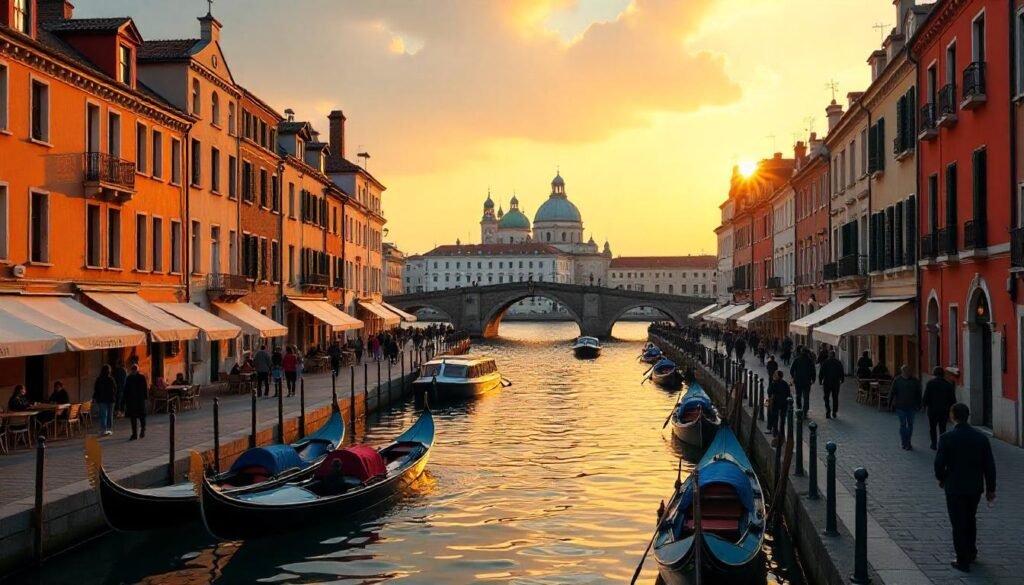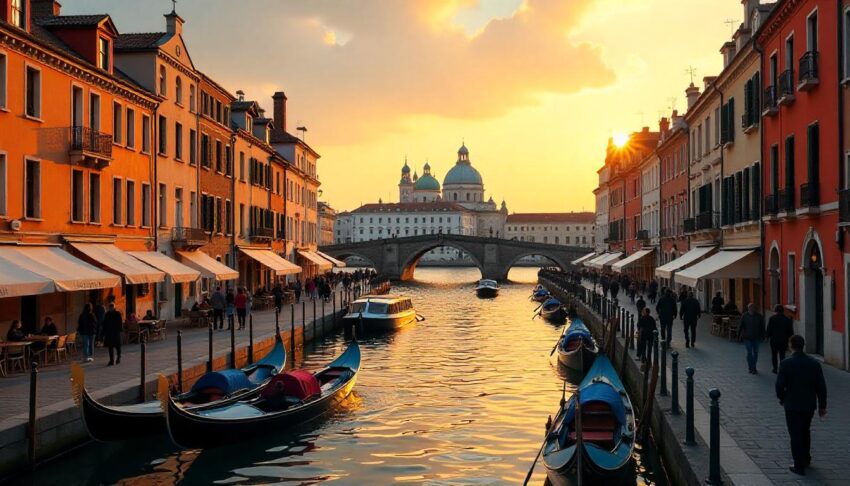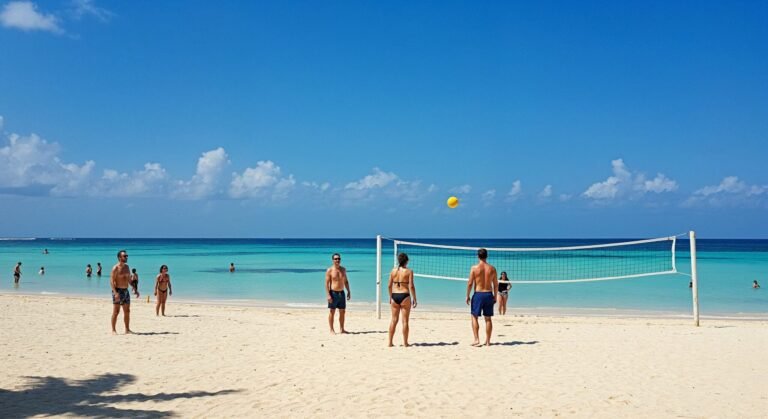
Friday, June 27, 2025

Portugal joins Spain, France, Italy, Greece, Croatia, and Romania at the forefront of Europe’s tourism revival, driven by record-breaking tourist arrivals and a booming hospitality sector that’s powering hotel revenues, occupancy rates, and regional expansion across the continent. In early 2025, these seven countries have emerged as the key engines behind Europe’s travel resurgence, fueled by rising international demand, strong investor confidence, and a growing shift toward culturally rich, experience-led travel. From full hotel bookings to soaring overnight stays, their combined performance marks a powerful return for the continent’s tourism economy.
Portugal Reawakens with Resilience and Reach
Portugal’s tourism recovery gained serious momentum in early 2025, registering a steady rise in both guest numbers and hotel performance. In January, the country recorded 1.6 million visitors, up 8.3% year-on-year, and April’s guest count rose to 2.9 million, marking an 8.5% increase. This surge translated directly into economic growth, with tourism revenue reaching €571.1 million in April — a 12.6% jump — and hotel revenues growing by nearly 14%.
Portugal’s hotel industry is thriving across all key indicators. In Q1 2025, occupancy reached 58.1%, ADR averaged €113.10, and RevPAR climbed to €65.75, reflecting a 3.9% year-on-year increase. Lisbon remains the epicenter of hospitality development, boasting a pipeline of over 5,000 new rooms. Porto continues its upward trajectory as a cultural and leisure hub. Meanwhile, Madeira and the Azores have become unexpected leaders — Madeira saw an 18.9% increase in overnight stays in March, proving that regional tourism is rapidly diversifying.
Portugal: From Atlantic Charm to Inland Wonders
Lisbon
- Why go: Historic trams, tiled facades, and riverside nightlife
- Must-do: Ride Tram 28, explore Alfama, visit Belém Tower
- Hidden gem: LX Factory – a hip hub of art, food, and books
Porto
- Why go: Wine, bridges, and postcard-perfect streets
- Must-do: Tour the Port wine cellars, stroll Ribeira, cross Dom Luís I Bridge
- Hidden gem: Livraria Lello – one of the world’s most beautiful bookstores
Funchal (Madeira)
- Why go: Island beauty, volcanic peaks, year-round flowers
- Must-do: Monte cable car, levada walks, local poncha drinks
- Hidden gem: Mercado dos Lavradores – colorful market with tropical vibes
Spain: A Tourism Giant Roars Again
Spain continues to lead Europe’s travel revival, welcoming 17.1 million international tourists in Q1 2025 — a 5.7% rise over last year. Tourism spending also hit new highs, with €23.5 billion in Q1 revenue, and April alone recorded €10.82 billion, a 14.1% year-on-year increase. The country’s coastal destinations and cities are buzzing with early-season demand.
Hotel performance in Spain has accelerated significantly. Q1 2025 data shows occupancy at 70%, ADR rising 6% to €129, and RevPAR growing in tandem. These metrics are fueled by strong performance in both urban and beach markets. Barcelona has returned to near-peak tourism volumes, with city hotels experiencing sustained bookings. Madrid’s hospitality sector is booming thanks to business travel, cultural events, and robust domestic tourism. Meanwhile, the Balearic Islands and Andalusia are seeing full occupancy forecasts well before the summer peak, with luxury and boutique accommodations performing especially well.
Spain: Culture, Coastlines, and Tapas Trails
Barcelona
- Why go: Gaudí architecture, Mediterranean beaches, Catalan flair
- Must-do: Sagrada Família, Park Güell, Gothic Quarter tapas crawl
- Hidden gem: Bunkers del Carmel – for unbeatable city views
Madrid
- Why go: Royal history, world-class art, vibrant nightlife
- Must-do: Prado Museum, Retiro Park, Gran Vía shopping
- Hidden gem: El Capricho Park – a serene, little-known oasis
Seville
- Why go: Flamenco, Moorish palaces, orange-scented alleys
- Must-do: Alcázar, Cathedral, Plaza de España by rowboat
- Hidden gem: Metropol Parasol – a modern marvel with rooftop views
France: Strongest Recovery in the West
France has reestablished its dominance in global tourism, posting a 6% rise in international tourism receipts in Q1 2025. This growth is driven by steady long-haul recovery, increased intra-European travel, and a rebound in business and event tourism. France’s tourism success is now radiating beyond Paris, with other cities and regions posting strong gains.
The hospitality sector in France is recovering smartly, even as occupancy showed slight dips in Q1. According to STR, RevPAR increased due to higher room rates, not just volume. In Minor Hotels’ regional data, France contributed to Southern Europe’s RevPAR of €82, with ADR at €127 and occupancy at 64%, up 2.1 percentage points year-on-year. In Paris, hotel bookings have surged back to near full capacity. Nice and the French Riviera are performing well in the lead-up to the summer season, while Lyon and Bordeaux are showing consistent growth fueled by culinary and wine tourism. France’s high-end and boutique segments are proving especially resilient.
France: Elegance, Romance, and Timeless Cities
Paris
- Why go: Romance, art, cafés, and global icons
- Must-do: Eiffel Tower, Louvre, Seine cruise, Montmartre walk
- Hidden gem: Rue Crémieux – a rainbow-colored residential street
Lyon
- Why go: Gastronomy capital of France
- Must-do: Explore traboules (hidden passageways), dine in a bouchon
- Hidden gem: Fourvière Hill for panoramic city views
Nice
- Why go: French Riviera beauty with Italian flair
- Must-do: Promenade des Anglais, Old Town markets, hilltop Château
- Hidden gem: Nearby Èze village – clifftop charm and perfumeries
Italy: Cultural Magnet with Solid Growth
Italy has entered 2025 with confidence, seeing an estimated 4% growth in tourism receipts in Q1. International demand remains strong across heritage cities, while experiential tourism continues to expand into rural and southern regions. The country is also seeing extended stays from long-haul visitors, boosting both volume and hotel performance.
Italy’s hospitality metrics underline this rebound. In Q1, occupancy hit 62% — up 3 percentage points year-on-year — while ADR reached €147, supporting healthy RevPAR gains across the board. Rome’s hotel sector is performing especially well, driven by consistent demand from both cultural and religious tourism. Venice and Florence are seeing strong bookings, with new measures in place to manage tourist flows. Southern Italy is quietly becoming a star, with Sicily, Puglia, and the Amalfi Coast showing sharp rises in occupancy and RevPAR, particularly in the boutique and upscale segments. Hotels across the country are leveraging digital bookings and sustainability trends to retain long-term guests.
Italy: Culture, Cuisine, and Coastlines Collide
Rome
- Why go: Living museum of ancient and modern life
- Must-do: Colosseum, Vatican Museums, Trevi Fountain
- Hidden gem: Aventine Keyhole – a secret view of St. Peter’s
Florence
- Why go: Renaissance art and Tuscan elegance
- Must-do: Duomo climb, Uffizi Gallery, sunset at Piazzale Michelangelo
- Hidden gem: San Lorenzo Market for leather and food lovers
Naples
- Why go: Birthplace of pizza, gateway to Pompeii and Amalfi Coast
- Must-do: Underground Naples tour, day trip to Capri
- Hidden gem: Castel dell’Ovo – seaside castle with epic views
Greece: A Quiet Off-Season Success
Greece posted a major off-season win in Q1 2025, drawing in approximately 2.46 million international tourists, a 5.4% rise, and generating over €1 billion in tourism revenue. This early performance was powered by strong demand from non-EU markets, where arrivals rose 11.7%, helping to fill hotels outside the typical summer window.
The country’s hospitality sector has followed suit. In Southern Europe’s regional benchmarks, which include Greece, occupancy hit 58.1%, ADR reached €113.10, and RevPAR was €65.75. Notably, Greece’s 4–5-star hotels grew revenue by 9.9%, while even 1–3-star hotels increased by 5% — showing that demand is strong across all tiers. Athens remains the core of cultural tourism, with revitalized neighborhoods and high-performing hotels. Thessaloniki has grown as a destination for regional travelers, while Crete, Rhodes, and Santorini are seeing early-season growth that rivals their traditional high seasons. New wellness resorts and eco-lodges are tapping into a growing market for sustainable travel, further boosting Greece’s hotel performance metrics.
Greece: Islands, History, and Mythical Vibes
Athens
- Why go: Cradle of democracy and classical beauty
- Must-do: Acropolis, Plaka stroll, rooftop drinks at sunset
- Hidden gem: Anafiotika – an island-like village under the Acropolis
Thessaloniki
- Why go: Greece’s second city with a youthful, cultural buzz
- Must-do: White Tower, Rotunda, beachfront promenade
- Hidden gem: Ladadika District – hidden bars and local flavors
Chania (Crete)
- Why go: Venetian port charm and Cretan hospitality
- Must-do: Old Town harbor, Samaria Gorge hike, beach-hop Elafonissi
- Hidden gem: Botanical Park of Crete – lush and peaceful
Croatia: Holding Strong with a Solid Foundation
Croatia continues to benefit from its rising global profile, entering 2025 after recording over 20 million international arrivals in 2024. In Q1, the country saw a 7.4% year-on-year increase in arrivals, totaling 1.82 million visitors, with many regions reporting strong demand despite the traditionally slower season.
While detailed hotel data remains limited, industry analysts report that Mediterranean destinations — including Croatia — outperformed other European regions in Q1, with robust RevPAR growth. Dubrovnik has seen a strong return of visitors, and hotels inside the walled city are reporting early full-bookings for spring and summer. Split’s combination of Roman history and Adriatic access continues to appeal to travelers, and the surrounding Dalmatian islands are increasingly being booked through extended-stay platforms and boutique travel agents. Zagreb is gaining popularity among European weekend travelers, with hotel performance rising steadily as Romania and Central Europe increasingly connect with Croatia’s urban core.
Croatia: Coastline Drama and Medieval Charms
Dubrovnik
- Why go: Game of Thrones meets ancient city walls
- Must-do: Walk the walls, cable car to Mount Srđ, kayak the Adriatic
- Hidden gem: Buža Bar – a cliffside spot built into the city walls
Split
- Why go: Roman ruins fused with beachside energy
- Must-do: Diocletian’s Palace, Marjan Park, day trip to Hvar
- Hidden gem: Klis Fortress – panoramic views without the crowds
Zagreb
- Why go: Artistic, walkable capital with a central-European feel
- Must-do: Upper Town, Museum of Broken Relationships, local cafés
- Hidden gem: Mirogoj Cemetery – peaceful and architecturally stunning
Romania: The Quiet Climber
Romania may be Europe’s quiet climber, but its tourism metrics are growing with purpose. Q1 2025 recorded a 2.7% increase in arrivals, and over 1.574 million overnight stays in tourist accommodation units. Although the vast majority of tourism remains domestic — around 79.9% — international travel is slowly rising, aided by cultural marketing and budget-friendly options.
Romania’s hospitality sector is also showing tangible improvement. As part of Eastern Europe’s hotel zone, it posted an average occupancy rate of 57.6%, ADR of €92.70, and RevPAR of €53.45 — all significantly up from Q1 2024. Bucharest’s hotels are seeing increased weekday bookings thanks to corporate travel and events. Meanwhile, Brașov and Sibiu are climbing the charts for heritage and festival tourism. Cluj-Napoca continues to attract younger tourists and digital nomads, giving rise to a new class of affordable, modern accommodation options. From Carpathian cabins to historic city hotels, Romania’s hospitality offering is diversifying to match its growing visitor base.
Romania: Castles, Carpathians, and Cultural Heartlands
Bucharest
- Why go: Grand architecture meets gritty charm
- Must-do: Palace of the Parliament, Old Town nightlife, Lipscani area
- Hidden gem: Carturesti Carusel – a dreamy bookshop in a restored palace
Brașov
- Why go: Gateway to Transylvania with a storybook setting
- Must-do: Black Church, cable car up Tampa Mountain, Bran Castle nearby
- Hidden gem: Rope Street – one of the narrowest streets in Europe
Sibiu
- Why go: Medieval beauty and cultural depth
- Must-do: Big Square, Brukenthal Palace, ASTRA Museum
- Hidden gem: Eyes of Sibiu – quirky rooftop windows that “watch you”
Portugal joins Spain, France, Italy, Greece, Croatia, and Romania in leading Europe’s tourism revival, driven by record tourist arrivals, surging hotel revenues, rising occupancy rates, and expanding regional destinations across the continent.
Europe’s Hospitality Engine is Running Again
Together, these seven countries are not just recovering — they’re thriving. From historic cities to sun-drenched coasts and mountain hideaways, record tourist arrivals and a booming hospitality sector are reviving the spirit of travel across Europe. Hotel development pipelines are back, bookings are rising, and travelers are choosing experience-rich, authentic destinations over mass-market ones.
This comeback isn’t a short burst. It reflects a deeper shift: travelers are returning not just for sightseeing, but for meaningful connections, comfort, and culture. Europe, with its deep roots and dynamic hospitality sector, is rising again — and Portugal is proudly among the leaders driving that revival forward.
Tags: Croatia, Europe, france, greece, Italy, Portugal, romania, spain, Tourism news, travel industry, Travel News






